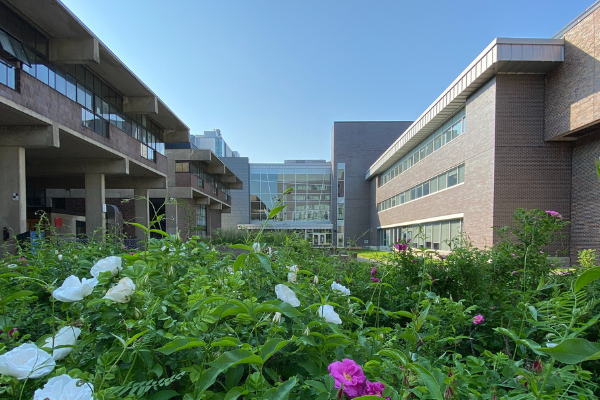As a student who lived on campus during my first year and transitioned to living off-campus, I know there are countless factors to take into consideration when making this shift. So, I wanted to share some of my insights and tips for students who find themselves in a similar situation to myself.
The first step when planning to live off-campus is to decide whether or not you want to live with roommates. This will determine what type of house or apartment you will need to start searching for. In my experience, I decided to live with three roommates. So, when looking for a place, we had to make sure it had minimum four rooms, and we wanted two bathrooms.
A few other questions to ask yourself when browsing potential homes for your university degree include:
- Does the price of rent include utilities?
- Is there a laundry facility on site?
- How far is it from campus? How long will the commute be?
- What is the neighbourhood like? Do the surrounding neighbours consist mainly of students or families?
- How accessible are grocery stores?
Another aspect that would be useful to take into consideration is the group of people you plan to live with. It could be helpful to communicate one another’s standards for your living space prior to moving in together. Three questions you could ask each other include:
- Are you a morning person or a night owl? – this could help you gage if they will make noise early in the morning or late at night.
- How often would you want to clean the common spaces?
- How would you want to split the bills for shared items, such as toilet paper or dish soap?
After you’ve confirmed who your housemates will be, it’s important to communicate if you will be sharing any supplies with one another. Typically, homes available for rent are already equipped with larger appliances, such as a fridge or stove, so you don’t have to worry about that. However, for smaller supplies, such as a coffee maker, kettle, dish towels, or cleaning supplies, it could be beneficial to share the usage to maximize kitchen space. Alternatively, you want to check which supplies you will need to purchase when moving into your new home. Thus, for both these reasons it is beneficial to have a conversation with your roommates surrounding this topic.
In addition to learning more about the neighbourhood and your future roommates, another important technical element to pay attention to is the lease that you, as a tenant, must sign. The lease outlines all the rules and regulations between the landlord/rental agency and the tenant(s). It could cover a variety of topics such as, the parties to the agreement, the rental unit, tenant’s insurance, and more. For a full list of the categories that are included on a rental agreement, visit the Guide to Ontario’s standard lease, on the Ontario government website.
Many individuals skim through reading the entire lease because it seems like a long and boring document. However, I would highly suggest reading through the entire contract to ensure that if issues arise in the future, you will know what the guidelines or protocols are. For example, a landlord must always keep a rental property in a good state of repair and all things that the landlord provides to the tenant must be kept in working order. Although the lease is a binding contract, the Residential Tenancies Act sets out the obligations landlords/tenants have with one another. These obligations override what is in a lease.
Although the process of renting a house off-campus may seem overwhelming at first, it is actually a great learning opportunity and will definitely help you in your future. Not to mention, moving into a new house is an exciting experience overall!
Recent Quote the Raven Posts
Read the latest from our student Bloggers








 Ask Me
Ask Me